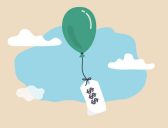Payday loans are unsecured personal loans that are typically repaid on your next payday. They can be a tempting option to quickly get the cash you need, but more often than not, their hidden fees and high rates can leave you trapped in debt.
Here’s what you need to know about payday loans and how they can impact your financial health.
Get pre-qualified
Answer a few questions to see which personal loans you pre-qualify for. The process is quick and easy, and it will not impact your credit score.Get Started
What are payday loans?
Payday loans are unsecured personal loans that you usually must repay by your next payday and generally total $500 or less. Because they are often a last-ditch option for borrowers with poor credit, payday loans tend to carry significantly higher interest rates than traditional personal loans and can come with a plethora of hidden fees. Because of this, they are often criticized for being predatory, particularly for borrowers with bad credit.
“The best way to identify a payday loan is any time you borrow money and you pay back the entire amount at once, normally your payday,” says Jeff Zhou, co-founder and CEO at Fig Tech, which offers payday alternative loans. Additionally, most payday lenders don’t run a credit check; if the lender isn’t interested in your credit history, this could be a sign that you’re dealing with a payday lender.
How do payday loans work?
Payday loans can typically be obtained through either a brick-and-mortar location or an online application process. To determine your rate and terms, the payday lender may request a hard credit check to view your credit score, although this is less common with a payday loan. The lender will also generally require proof of income and your pay date.
Typically, payday loans are regulated at both a federal and state level. Many states have laws that put limits on the amount of fees or interest rates that payday lenders can charge. Some states have banned payday loans entirely.
- Repaying a loan. There are a couple ways you can repay a payday loan. You might give the lender a postdated check that it can deposit on your next payday. Alternatively, you can authorize the lender to take the funds from your bank account once you’re paid by your employer or you receive benefits such as Social Security income or a pension.
- Credit checks. Your credit score isn’t as large of a factor with payday loans because the lender has the authority to take its payment from your bank account when you get your next paycheck. That’s how payday lenders minimize their risk. They also can base the principal amount of your loan on a percentage of your predicted income.
- Fees and other costs. Payday lenders don’t typically charge a traditional interest rate on their loans. Instead, they calculate fees to borrow and add them to the balance you have to repay. Let’s say a payday lender charges $10 for every $100 borrowed. That means you would owe $50 in fees for a $500 loan, and the whole $550 would be due your next payday.
If you can’t afford the payment when your next payday comes around, that’s when a lender might offer you a “rollover.” A rollover allows you to just pay the initial borrowing fee until your next paycheck, but you’ll still be on the hook for the original loan balance plus the fee for the rollover amount. Since many payday borrowers end up rolling their balances over because they are unable to cover the full amount when it’s due, these fees can rapidly pile up. This makes it difficult to get out of the payday loan debt cycle.
How is a payday loan different from a personal loan?
A payday loan and a personal loan have some similarities. Both are unsecured loans, which means that unlike a mortgage or auto loan, they are not backed by any form of collateral. However there are a few important differences that you’ll want to be aware of.
Borrowing terms
Personal loans typically have terms of at least a year and up to several years. A payday loan has a shorter term. It’s common for payday loans to need to be repaid in a matter of weeks. Usually the full payment – interest and fees included – will be due on your next payday.
Amounts
A payday loan is typically for a smaller amount – usually under $500. Personal loan borrowers typically seek much more cash. As of the first quarter of 2021, the average balance for a new personal loan was $5,213, according to TransUnion.
Payment
Personal loans are typically paid online monthly via direct deposit from a bank account. With a payday loan, if your check bounces or you can’t pay the full balance on the required payday, you may have to roll the loan over to the next payday, accruing more fees in the process.
Rates
There are a wide variety of personal loans, but most will have much lower interest rates than payday loans. Your interest rate will depend on the lender, the amount that you borrow and your credit score.
What if I have bad credit?
Many payday lenders do not rely on a credit check at all. They understand that most borrowers who are looking for payday loans typically do not have the best credit. Instead, lenders make up for the increased credit risk by charging higher interest rates and more fees.
If your payday lender doesn’t require a hard credit check and you’re able to pay back the full amount by the required date, a payday loan typically won’t negatively affect your credit. If your lender does require a hard credit check, you may notice that your credit score drops a few points.
However, if your check bounces or you can’t pay the full balance on the required payday, the amount could be sent to a collection agency, which has negative consequences for your credit.
Risks of a payday loan
Due to the high interest rates and hidden fees, payday loans have the potential to derail your financial health and your credit score. “Payday loans charge a high interest rate, but the biggest risk of payday loans is the fine print,” Zhou says.
The fine print can include change fees, mandatory subscription charges or early repayment fees, and these can all quickly add up.
“The biggest danger of payday loans is when they turn from a short-term stopgap into a long-term drain on your finances,” Zhou says.
If you don’t have a plan to pay your payday loan off in full on the requested date, you’ll have to roll your loan over, meaning you’ll be responsible for the principal balance and additional fees and accrued interest. This is a vicious cycle that could land you in high-interest debt down the road.
9 alternatives to payday loans
You might not be able to get a traditional bank loan to meet your quick-cash needs, but some of these methods to stretch your finances to the next payday might work better than a payday loan.
1. Use a credit card
If you have a credit card that’s not maxed out, you could use it to charge your expenses. Not only will your interest rate likely be lower than that of a payday loan, but you’ll have 30 days to pay the credit card balance before it incurs interest. If you can pay the money back by your next payday, a credit card could be a cheaper option.
2. Apply for a personal loan online
It’s possible to get a personal loan with less than perfect credit, but it will cost you. The lower your credit score is, the higher your interest rate and fees with a personal loan will be, or you might not be approved at all. Depending on your credit profile, the fees and interest with a personal loan may be so high that a personal loan may not make sense for you.
Some online lenders, such as LendingClub, have loans for as low as $1,000 to $2,000. Avant requires a minimum credit score of 580 FICO with an estimated APR that ranges from 9.95 percent to 35.99 percent – significantly lower than the estimated 400 percent that you’d be facing on a payday loan.
With many lenders, you can check your personal loan rates online without impacting your credit score. Once you’re approved, it’s possible to have the money sent to you within one business day.
3. Consider a credit union if you have time
Credit unions offer payday alternative loans (PALs) that allow you to borrow between $200 and $1,000 for a term of one to six months. The APR is capped at 28 percent.
But you have to be a member of a credit union for at least a month to be eligible to apply for PALs, so they won’t be the best solution if you need money immediately.
4. Turn to family and friends
Friends and family might not always be able to lend money, but sometimes they can help in ways that can lessen your expenses. For example, they can let you do your laundry at their place, which can save your costs at the laundromat, or they can make dinner for you and give you leftovers that will last until payday.
Don’t be afraid to open up to people who are close to you about your financial struggles. It takes a village – and one day you’ll be there for them, too.
5. Generate income quickly
There are a few things you can do to generate extra income quickly. One way to make extra cash is by selling some of your stuff that you can live without. Have clothes you can get rid of? Try selling them online or at local second hand stores.
You also can explore renting out a room on Airbnb, trading your unused gift cards in for cash or cashing in any unused rewards points on your credit cards.
6. Ask your employer for an advance
Check with your employer if you can get an advance on your paycheck to tide you over. Your HR or payroll department may be able to help you out.
7. Seek leniency to reduce or delay payments
If you owe money on certain bills, it’s a good idea to call each creditor to request an extension on your balance due date until you have the money to pay it back.
Many companies will agree to this leniency or find ways to allow you to make partial payments on your bills. It’s worth checking areas where you can lower or hold off on payments to get you through till payday.
8. Use emergency relief services to reduce your expenses
You might be able to save up for any upcoming payment and eliminate other expenses in your budget by using emergency aid services in your community. Here are some ways:
- Local food banks: Reduce or eliminate your grocery bill by accessing the resources of a food bank in your area while you wait for your next paycheck.
- Low Income Home Energy Assistance Program (LIHEAP): This is a program run by the federal government to help families meet their energy needs.
- Local community service agency: Many communities have nonprofit organizations that help residents in times of need. For example, Community Services Agency in Mountain Park, California, offers help with rent, utilities and back-to-school expenses. Some local churches or other religious institutions offer similar services.
9. Consider pawn loans
You could borrow money from a pawn shop by using one of your valuable items as security against your loan. The pawnbroker will hold the item and lend you an amount that typically is a portion of the resale value of the item, often for a high fee.
If you make payments on this loan, you’ll be able to redeem your item. If you stop making payments, the pawnbroker eventually will sell your item to recover its loss.
But a pawn loan is an expensive way to borrow money, with some loans charging APRs upward of 200 percent, and the term length for many pawn loans is just 30 days.
Pawnbrokers don’t report your payment history to consumer credit agencies, so if you don’t pay your loan off, it won’t impact your credit. But you’ll lose the pawned item
Get pre-qualified
Answer a few questions to see which personal loans you pre-qualify for. The process is quick and easy, and it will not impact your credit score.Get Started
The bottom line
Payday loans can be beneficial under the right circumstances. If you have a sound financial history but just need a bit of extra cash to cover an expense, a payday loan could be a great option. However, remember that payday loans come with risks, and if you’re not confident in your ability to repay your debt, a payday loan could ruin your credit score or even land you in court.
Before getting a payday loan, speak with banks and credit unions about your loan options and find the best rate available. The dangers of payday loans often outweigh the benefits, so make sure that you know exactly what their terms are before applying.
The post What you need to know about payday loans appeared first on Bankrate
Original source: Bankrate






